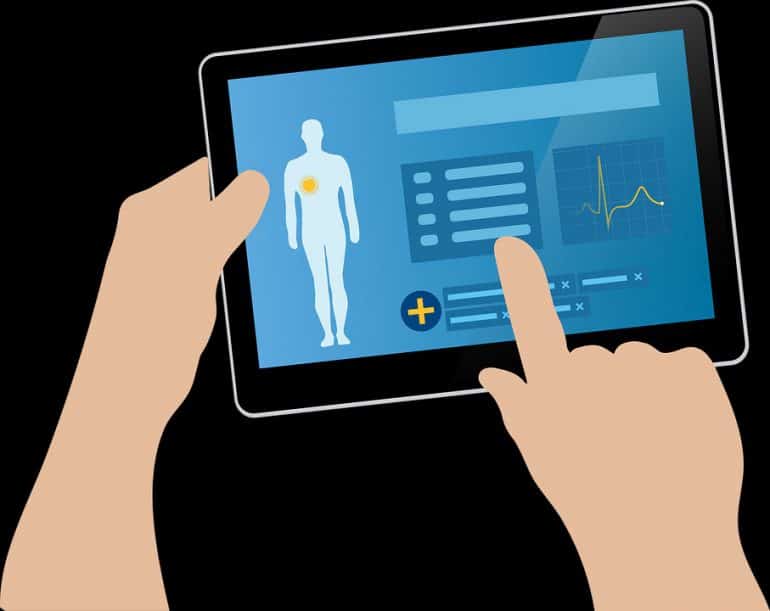Have you been hearing the term EHR system quite a lot lately? Well, this is not a shocker as the healthcare industry is increasingly implementing different EHR systems into their day-to-day work process.
You can find about EHR systems in detail on the Clinicast website for a better understanding.
As mentioned above, the majority of healthcare practices are implementing EHR in their practice but the question remains the heavy dent on the pocket in terms of financial costs of these EHR systems, is it worth it?
To find it out, we need to understand what EHR systems are and how they make life easy for both doctors and patients. Let’s have a look.
EHR systems
EHR is an abbreviation for “Electronic Health Records”. In simple words, EHR is an electronic representation of the record of the patient that is compiled by the healthcare organization.
The electronic health record will include details of the patient like:
- The medical history of the patient
- Diagnosis both current and past
- Medications both current and past
- Dates of immunizations
- Past allergies details
- Lab results
- Images of any radiology or scan
Cost of EHR systems implementation
EHR systems are transforming the medical healthcare industry to a grave level. It is highly recommended by medical practitioners as it provides desirable results and makes life easy for both patient and the medical health practitioner.
Now that you have made a decision to implement an EHR system in your medical healthcare practice, you need to know if it is worth implementing because of the cost.
The cost of EHR systems implementation in a medical practice varies. It depends on how you plan to create an EHR system or outsource it.
The average cost of an EHR system varies from $15,000 to a whopping $70,000 per healthcare organization.
Keeping in mind that EHR systems tend to be on the expensive side when it comes to their implementation in a healthcare organization, it is up to the physician or head of the healthcare organization to decide whether it is worth it or not.
To make the decision easier we have jotted down a few benefits and disadvantages of an EHR system.
Benefits of EHR systems
Here are the benefits of Electronic Health Record systems:
- One of the major benefits of EHR is that all the data is kept safe in a format that is electronic making accessibility easy and instant. This also means that the data can be accessed from anywhere in the world whenever needed.
- Electronic health records are considered to be very safe as compared to the old and orthodox method of recording the details of patients. It is easier to assemble and access. Electronic records are secured in such a way that they cannot be accessed without authority.
- The patient’s records can be shared among different healthcare providers, facilities that provide medical images, other specialists, pharmacies, labs, workplace clinics, and care centers according to the urgency of the situation.
- EHR comes in handy in emergency situations when the patient needs treatment immediately. This is exactly the kind of situation when the medical practitioner needs to administer medicine but wants to know about any previous allergic reaction or previous medication of the patient. An EHR helps in getting the information instantly making it easier for the doctor to administer any certain kind of treatment or injection without worrying about a possible reaction.
- EHR systems minimize the chances of medical errors also. This helps the patient and the doctor equally as the record is systematic and foolproof of any kind of errors.
- The EHR system standardizes the data as it becomes part of the system, reducing the chances of miscommunication among the patient and the health practitioner. A doctor has access to the record directly and he can check it without any kind of misinterpretation or confusion ensuring that whatever treatment he gives to the patient is in accordance with the medical record in the EHR system.
- Electronic health records can be printed whenever you want to. Making it easier for the patient or doctor to make a personal file or record in order to take notes directly. This will give them direct control of the record and will make the whole process more transparent.
Disadvantages of EHR systems implementation
Like anything else in the world, the EHR system also has its own flaws and risks. Let’s have a look
- As an EHR system is entirely electronic, the failure of the technology is an aspect that cannot be ignored. The risk of technology failure is attached which can make the EHR system go blank and you might lose all the data if you have not saved it anywhere else in paper form.
- Leaking of the data. This is a very common phenomenon that is attached to the EHR system. Given that nothing is safe in this era of technology, the data of the patient might get hacked or leaked and it may get transferred into the hands of people who can use it with malicious intentions.
- Human error is also a stigma when it comes to the EHR system. If the data is not input correctly by the human, the incorrect information would be related to the doctor and to other related personnel until and unless it is identified and rectified.
Conclusion
As the whole world moves towards electronic advancements, it will become mandatory for medical healthcare systems to upgrade themselves to electronic record systems.
It is still considered to be cost-effective provided the services it gives and the amount of relaxation it brings to the lives of patients and doctors, this is the mere reason why more and more healthcare organizations are adopting the EHR system.

